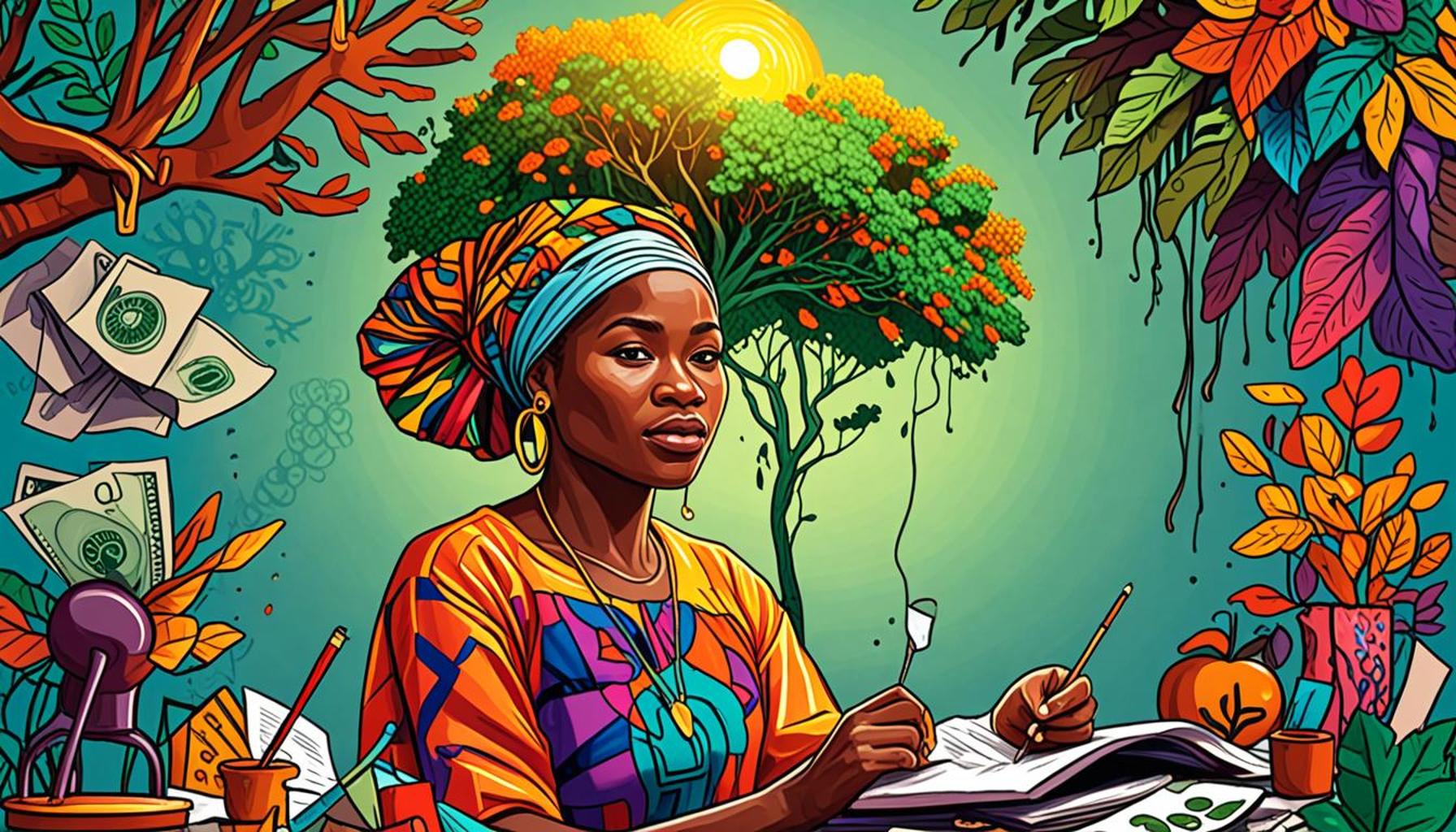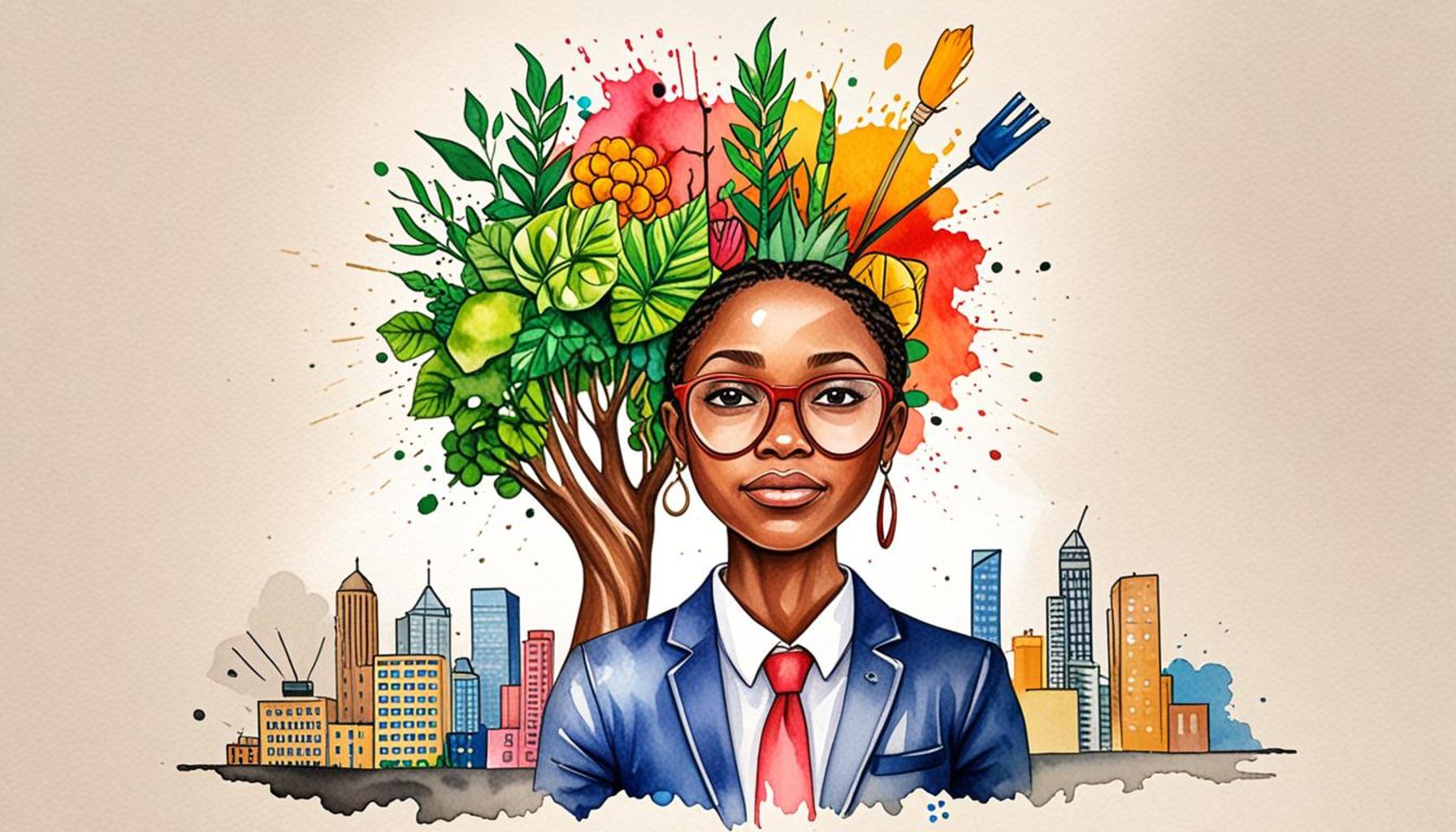The Importance of Resilience in Nigerian Culture: Techniques to Strengthen Personal Growth

The Cultural Significance of Resilience in Nigeria
In Nigeria, resilience is more than a mere characteristic; it embodies a cultural ethos deeply ingrained in the society. The nation faces a multitude of challenges, including economic volatility, social discord, and pressing environmental issues. Yet, the Nigerian spirit shines through these obstacles, showcasing a remarkable capacity for endurance and adaptability. This quality not only defines individuals but also serves as a foundation for community strength and collective development.
Several factors contribute to the strong significance of resilience within Nigerian culture:
- Shared Experiences: In times of adversity, communities often come together, emphasizing solidarity and mutual support. This collective resilience has been observed during crises such as the devastating floods in Benue State, where neighbors joined forces to rebuild homes and assist families affected.
- Resourcefulness: Nigerian traditions highlight the importance of ingenuity and creativity in overcoming challenges. For instance, during periods of economic hardship, many individuals turn to entrepreneurial ventures, ranging from local crafts to technology startups, illustrating an innate ability to pivot and adapt to changing circumstances.
- Cultural Heritage: The rich tapestry of Nigerian folklore and proverbs offers timeless wisdom about resilience. Stories of legendary heroes like Kwaru of the Gwari people, who faced overwhelming odds yet triumphed, are passed down through generations, teaching children valuable lessons about perseverance.
Moreover, resilience is not only vital for coping but also for personal growth. Individuals who embrace this trait often find themselves better equipped to handle life’s challenges, unearthing personal strengths previously unknown to them. This article delves into the importance of resilience in Nigerian society and introduces practical techniques for enhancing personal growth. For instance, workshops focusing on mental health awareness—such as “Resilience Training Bootcamps”—have become popular, helping participants learn coping strategies that empower them in real-world situations.
From the bustling markets of Lagos, where traders haggle and innovate daily, to the serene landscapes of Northern Nigeria, where communities gather to celebrate cultural festivals, resilience is intricately woven into the very fabric of life. Embracing this essential characteristic can lead to profound personal development and greater potential for success, as it encourages proactive problem-solving and fosters positive relationships within the community.
Understanding and cultivating resilience is crucial for the future of Nigeria, empowering its citizens to not only navigate the present but to also pave the way for future generations. As Nigerians continue to embrace this cultural hallmark, they can face challenges with unyielding courage and boundless optimism.

ADDITIONAL INSIGHTS: Expand your understanding here
Resilience as a Catalyst for Personal Growth
Resilience is a critical factor in fostering personal growth among Nigerians, making it essential for individuals to harness and develop this attribute. In an environment shaped by unpredictability—ranging from political instability to economic challenges—the ability to bounce back from setbacks is invaluable. A resilient mindset empowers individuals to turn obstacles into opportunities, ultimately leading to personal transformation and success.
One notable aspect of resilience in Nigerian culture is its emphasis on adaptability. This characteristic enables individuals to shift their perspectives and approaches in response to changing circumstances. For example, during the recent economic constraints faced by many Nigerians, individuals who embraced a resilient attitude were often able to pivot their career paths, discovering new avenues for revenue generation. Rather than succumbing to despair, many opted to develop new skills, engage in self-education, or launch their own businesses, illustrating the powerful connection between resilience and personal growth.
Furthermore, the concept of resilience in Nigeria can be bolstered through various techniques that encourage self-improvement. Here are some effective strategies that individuals can adopt to fortify their resilience:
- Mindfulness Practices: Engaging in mindfulness techniques—such as meditation, yoga, or journaling—can help individuals gain clarity, reduce stress, and foster a deeper connection with oneself. This self-awareness is essential in cultivating a resilient mindset.
- Goal Setting: Defining clear and achievable personal goals encourages individuals to remain focused and motivated. By breaking larger goals into smaller, manageable tasks, individuals are more likely to build upon their successes, which enhances their self-efficacy.
- Building Support Networks: Establishing a solid support system with family, friends, and mentors can provide emotional encouragement in trying times. Engaging in group activities, whether cultural festivals or local gatherings, fosters a sense of belonging and shared purpose, which in turn boosts resilience.
- Storytelling and Sharing Experiences: Participating in community events that focus on storytelling can help individuals learn from others who have faced similar challenges. Sharing personal triumphs not only empowers the storyteller, but it also inspires resilience in the listeners.
These techniques, deeply rooted in Nigerian values, serve as practical pathways to enhancing resilience and promoting personal development. It is pertinent to note that resilience is not simply a trait one is born with; rather, it is a skill that can be nurtured and strengthened over time. In doing so, individuals can unlock their full potential, helping to build a more resilient nation collectively.
As cultural narratives continue to celebrate the strength and fortitude of Nigerians, it becomes clear that fostering a resilient spirit is essential for navigating both personal and communal challenges. The resilience embedded in Nigerian culture not only contributes to individual success but also encourages collective growth—an indispensable asset for the nation as it progresses into the future.
| Resilience Techniques | Impact on Personal Growth |
|---|---|
| Adaptability | Increases one’s ability to handle change effectively, fostering growth. |
| Community Support | Collaborative resilience nurtures relationships, enhancing emotional wellbeing. |
| Mindfulness Practices | Encourages self-awareness, leading to informed decision-making. |
| Cultural Storytelling | Preserves heritage and strengthens personal identity, fueling resilience. |
Resilience in Nigerian culture reflects a deep-rooted understanding of hardship and adaptation. Adaptability is a crucial technique that empowers individuals to face unforeseen challenges, transforming obstacles into opportunities for growth. Furthermore, community support stands as a testament to the collectivist nature of Nigerian society; emotional connections fostered through shared experiences significantly enhance an individual’s ability to recover from setbacks.In addition, mindfulness practices are increasingly being embraced, encouraging people to remain present and aware. This self-awareness is pivotal, as it informs decisions and actions. Another significant aspect is cultural storytelling, a method that not only preserves heritage but also reinforces personal identity. By sharing stories of resilience, individuals find strength and inspiration, thereby fueling their own paths to growth. These techniques form a holistic approach towards achieving personal resilience, emphasizing the profound impact of culture on individual development and reinforcing the importance of continued learning and adaptation in the face of challenges.
CHECK OUT: Click here to explore more
Community and Resilience in Nigeria
The significance of resilience is amplified within the community fabric of Nigeria, where interdependence and cooperation are essential elements of daily life. The strong communal ties often found in various ethnic groups, from the Igbos to the Yorubas and Hausas, provide a support system that underpins individual resilience. This sense of belonging not only mitigates feelings of isolation during turbulent times but also bolsters collective strength—the ideal backdrop for personal growth.
One striking example of resilience within Nigerian communities is the phenomenon of “Ajao” or “the collective approach” to problem-solving. This cultural practice exemplifies how communal efforts can help individuals navigate personal challenges. By pooling resources, knowledge, and encouragement, community members often uplift one another in times of crisis, thereby amplifying the potential for personal resilience. Whether it is a group of neighbors coming together to support a family facing economic hardships or local leaders mobilizing people for a cause, these everyday acts of solidarity foster an environment conducive to personal development.
The Role of Education in Strengthening Resilience
Education plays a pivotal role in growing resilience among Nigerians. By providing individuals with essential tools and knowledge, educational institutions are incubators for resilience. Many Nigerian schools and universities are increasingly incorporating resilience training into their curricula—teaching students how to handle failures and challenges effectively. Programs that focus on emotional intelligence, critical thinking, and conflict resolution empower learners to develop a resilient mindset even before they enter the workforce.
Moreover, social initiatives, such as mentorship programs and scholarships for underprivileged youth, encourage resilience by providing access to critical resources that empower them to strive for success despite their circumstances. Such educational initiatives demonstrate how a well-rounded approach to resilience can pave the way for improved individual outcomes, ultimately contributing to national growth.
- Emphasizing Cultural Heritage: Engaging with one’s cultural heritage can also reinforce resilience. Traditional practices, such as storytelling and rituals, are avenues for sharing knowledge and experiences, thereby instilling a sense of identity and pride. Individuals who connect with their cultural roots often find strength in historical narratives that reflect perseverance amid adversity.
- Emotional Well-being: Addressing mental health alongside resilience is becoming increasingly important in Nigeria. By normalizing discussions around mental health, Nigerians can work to dismantle the stigma surrounding it. This opens up pathways for individuals to seek help, ultimately enhancing their resilience and promoting personal growth.
In bridging individual resilience with community support and educational opportunities, Nigerians can cultivate a dynamic strength that empowers not only personal growth but the psychological well-being of the nation. The ability to rise from challenges is a testament to the rich tapestry of resilience woven into Nigerian culture—a powerful force capable of shaping futures and influencing the trajectory of communities. By understanding and implementing these techniques, individuals can contribute to both their success and the overall resilience of society as a whole, embodying the essence of being resilient Nigerians.
LEARN MORE: This related article may interest you
Conclusion
In wrapping up our exploration of the importance of resilience in Nigerian culture, it is evident that resilience is not just a personal trait but a shared cultural ethos that permeates various aspects of life in Nigeria. From the strength found within local communities through collective efforts like “Ajao” to the profound role of education in fostering grit and determination, the pathways to building resilience are plentiful and multi-faceted.
Nigeria’s rich tapestry of ethnic diversity provides a unique context where traditional values and modern challenges intersect, creating fertile ground for personal growth. Engaging with one’s heritage through storytelling and cultural practices reinforces individual identity and cultivates resilience, while initiatives aimed at emotional well-being help address the critical mental health issues that can hinder personal progress.
Moreover, as educational institutions embrace resilience training, we can anticipate a generation of Nigerians equipped not only to tackle personal adversities but also to contribute positively to their communities and the nation as a whole. This holistic approach underscores a significant realization: resilience is an empowering tool that, when harnessed effectively, propels individuals toward success while also strengthening societal bonds.
The call to action for Nigerians is clear—actively seek out the available techniques to enhance personal resilience, from community support to educational opportunities. Embracing these strategies not only fosters personal growth but also reinforces a collective spirit that thrives amid challenges, ensuring the legacy of resilience flourishes in the hearts and minds of future generations.


